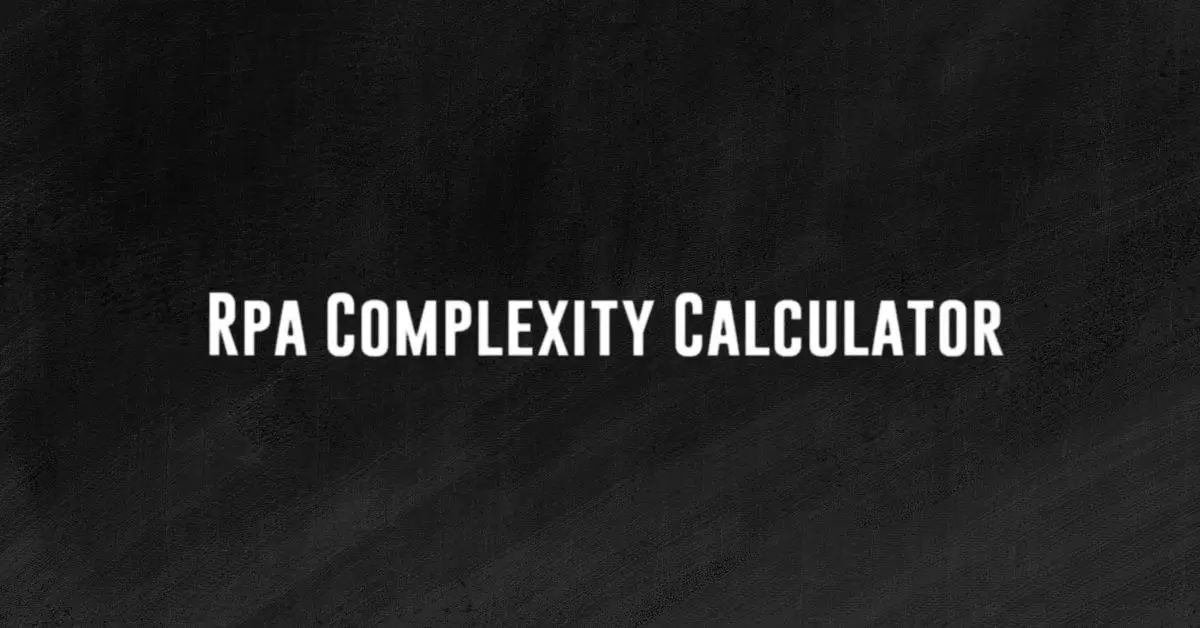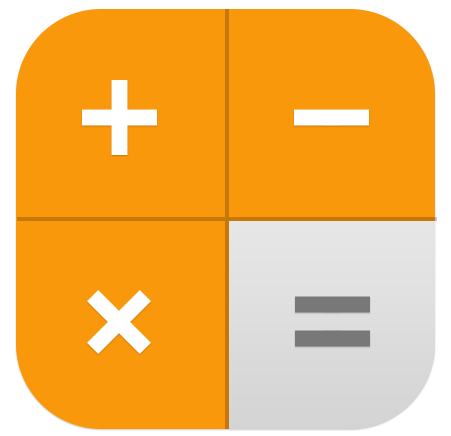RPA Complexity Calculator
Robotic Process Automation (RPA) has become increasingly popular in recent years as organizations look to streamline their operations and increase efficiency. However, implementing RPA solutions can be complex and time-consuming. One way to determine the complexity of an RPA project is to use an RPA complexity calculator.
RPA Complexity Calculator
| Number of Steps | |
| Number of Decision Points | |
| Number of System Interactions | |
| Number of Exceptions | |
| Complexity Score |
What is an RPA Complexity Calculator?
An RPA complexity calculator is a tool that helps organizations assess the level of complexity involved in implementing an RPA solution. The calculator takes into account various factors such as the number of processes to be automated, the complexity of those processes, and the level of integration required with existing systems.

How Does an RPA Complexity Calculator Work?
When using an RPA complexity calculator, organizations input information about the processes they wish to automate. The calculator then analyzes this information and provides a score or rating that indicates the level of complexity involved in automating those processes. This score can help organizations determine the resources and expertise needed to successfully implement an RPA solution.
Factors That Influence RPA Complexity
There are several key factors that can influence the complexity of an RPA project. These include:
- Number of Processes: The more processes that need to be automated, the higher the complexity of the project.
- Process Complexity: Some processes are simple and straightforward to automate, while others are more complex and require advanced RPA capabilities.
- Integration Requirements: If the automated processes need to integrate with existing systems or databases, the complexity of the project increases.
- Regulatory Compliance: Compliance requirements can add a layer of complexity to an RPA project, especially in highly regulated industries.
Benefits of Using an RPA Complexity Calculator
There are several benefits to using an RPA complexity calculator, including:
- Resource Planning: By understanding the level of complexity involved in an RPA project, organizations can better plan and allocate resources.
- Cost Estimation: Knowing the complexity of the project can help organizations estimate the costs involved in implementing an RPA solution.
- Risk Assessment: Assessing complexity can help organizations identify potential risks and challenges that may arise during the implementation process.
- Success Criteria: The complexity score provided by the calculator can serve as a benchmark for measuring the success of the RPA project.
Choosing the Right RPA Complexity Calculator
There are several RPA complexity calculators available on the market, each with its own set of features and capabilities. When choosing a calculator, organizations should consider factors such as:
- User-Friendliness: The calculator should be easy to use and understand, even for non-technical users.
- Customization: The calculator should allow organizations to input specific details about their processes for accurate complexity assessment.
- Scalability: The calculator should be able to handle projects of varying sizes and complexity levels.
- Integration: The calculator should integrate with existing RPA tools and platforms for seamless implementation.
Conclusion
Implementing an RPA solution can be a complex process, but using an RPA complexity calculator can help organizations assess the level of complexity involved and plan accordingly. By considering factors such as the number of processes, process complexity, integration requirements, and regulatory compliance, organizations can make informed decisions about their RPA projects. Choosing the right complexity calculator is key to successful implementation and maximizing the benefits of RPA technology.






